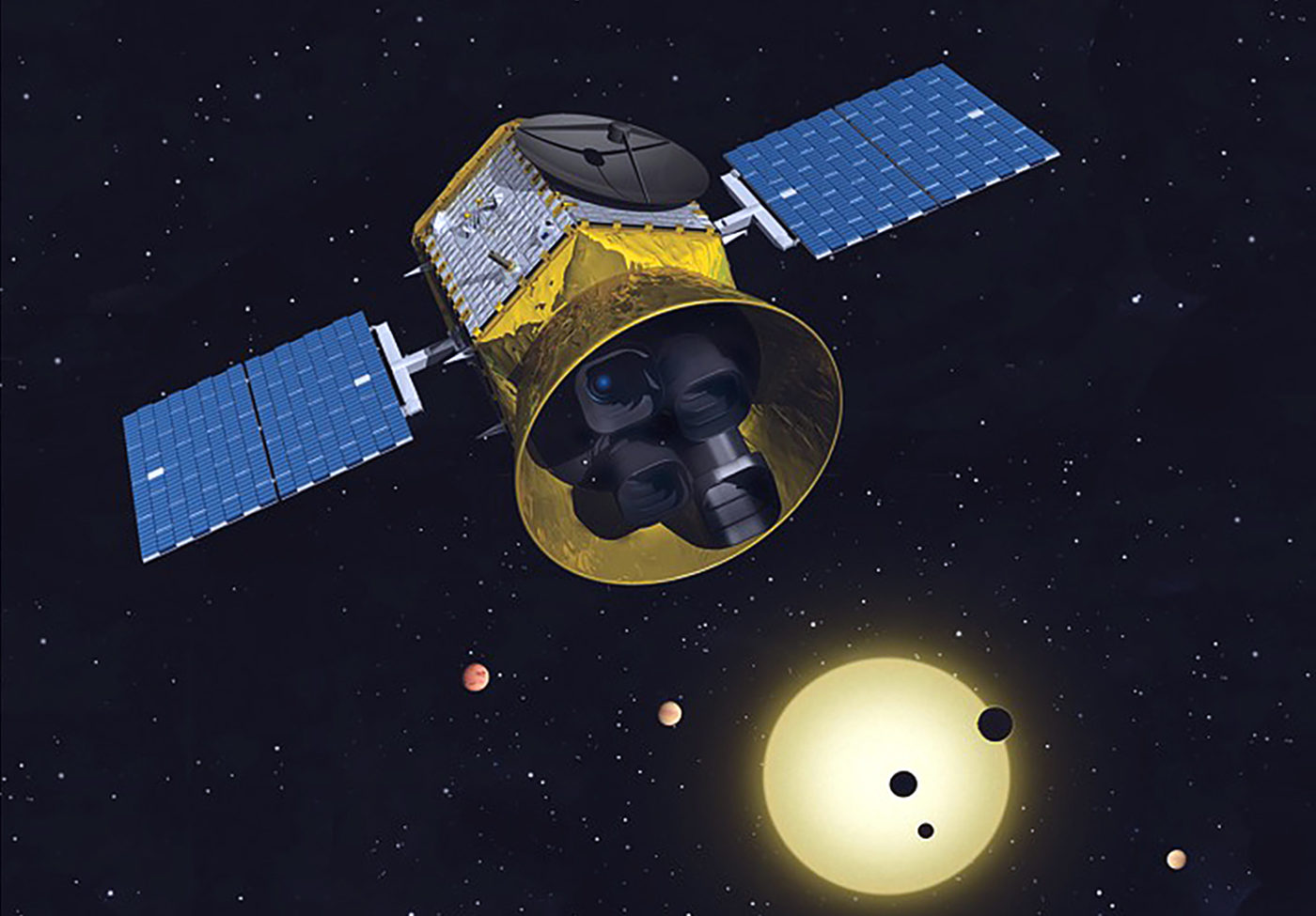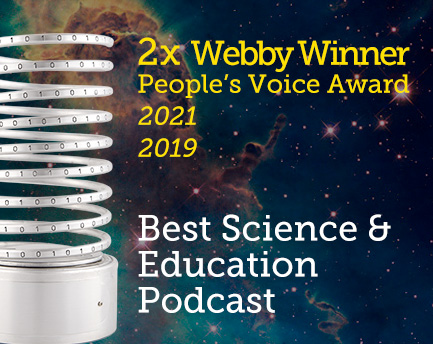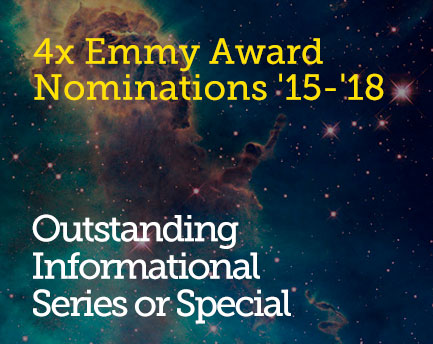October 1, 2018 8:57 pm
Tuesday, Mike Massimino, Chuck Nice, and Astronomer David Kipping Go Hunting for Exoplanets and More
“It’s a fun and exciting time to be alive,” as Mike Massimino says on this episode. The statement comes after a brief discussion around the new avenues that will soon allow us to hunt for exoplanets and unlock more mysteries of our universe like never before.

Conceptual image of the Transiting Exoplanet Survey Satellite (TESS) mission. Image credit; MIT.
On this week’s episode of StarTalk All-Stars, Astro Mike Massimino returns to the hosting hot seat alongside comic co-host Chuck Nice and returning StarTalk All-Stars guest David Kipping. David helped us hunt for exoplanets and explore the TRAPPIST-1 system on another episode of StarTalk All-Stars featuring Emily Rice, Exploring TRAPPIST-1, with Emily Rice, and we’re thrilled to have him back to help answer fan-submitted Cosmic Queries on exoplanets, telescopes, and more.
Our trio gets right into it as we take a look at the Wide Field Infrared Survey Telescope (WFIRST) which is a “mission concept to answer vital questions in both exoplanet detection and dark energy research.” You’ll hear why this mission is on the top of every astronomer’s “To Do” list. We also discuss how we measure dark energy and dark matter from the ground – it involves gravitational lensing and, in some cases, searching for collisions between high energy cosmic rays and dark matter in abandoned gold mines.
Discover more about NASA’s Transiting Exoplanet Survey Satellite (TESS) which began its operations to hunt for exoplanets in July. According to NASA, it will be doing a lot of work over the next couple of years:
“The mission will spend the next two years monitoring the nearest and brightest stars for periodic dips in their light. These events, called transits, suggest that a planet may be passing in front of its star. TESS is expected to find thousands of planets using this method, some of which could potentially support life.”
You’ll also hear why TESS is probably not the right telescope to find Planet 9 (David says it’ll probably be the Large Synoptic Survey Telescope (LSST)). We explore creating a telescope large enough to see the surface of exoplanets, similar to Google Maps. (Or, as Chuck calls is, “Google Planet.”) All that, plus we discuss the reusability of spy satellites for astronomical purposes, seeing outside our visible universe, and whether or not we’ll ever be able to travel to exoplanets. Lastly, David gives us the scoop on the James Webb Space Telescope and if it will ever get off the ground.
Please join us tomorrow night for Mission – Exoplanets, with Mike Massimino at 7pm ET right here on our website, as well as on our All-Stars channels on Apple Podcasts, Google Play Music, SoundCloud, Stitcher, and TuneIn. And if you’re an All-Access subscriber, you can watch or listen to this episode ad-free at 7pm, too.
That’s it for now. Keep Looking Up!
–Ian Mullen
Get the most out of StarTalk!
Ad-Free Audio Downloads
Ad-Free Video Episodes
Stickers & Mugs
Live Streams with Neil
Priority Cosmic Queries
Early-Access Videos
Learn the Meaning of Life
...and much more

 Become a Patron
Become a Patron

